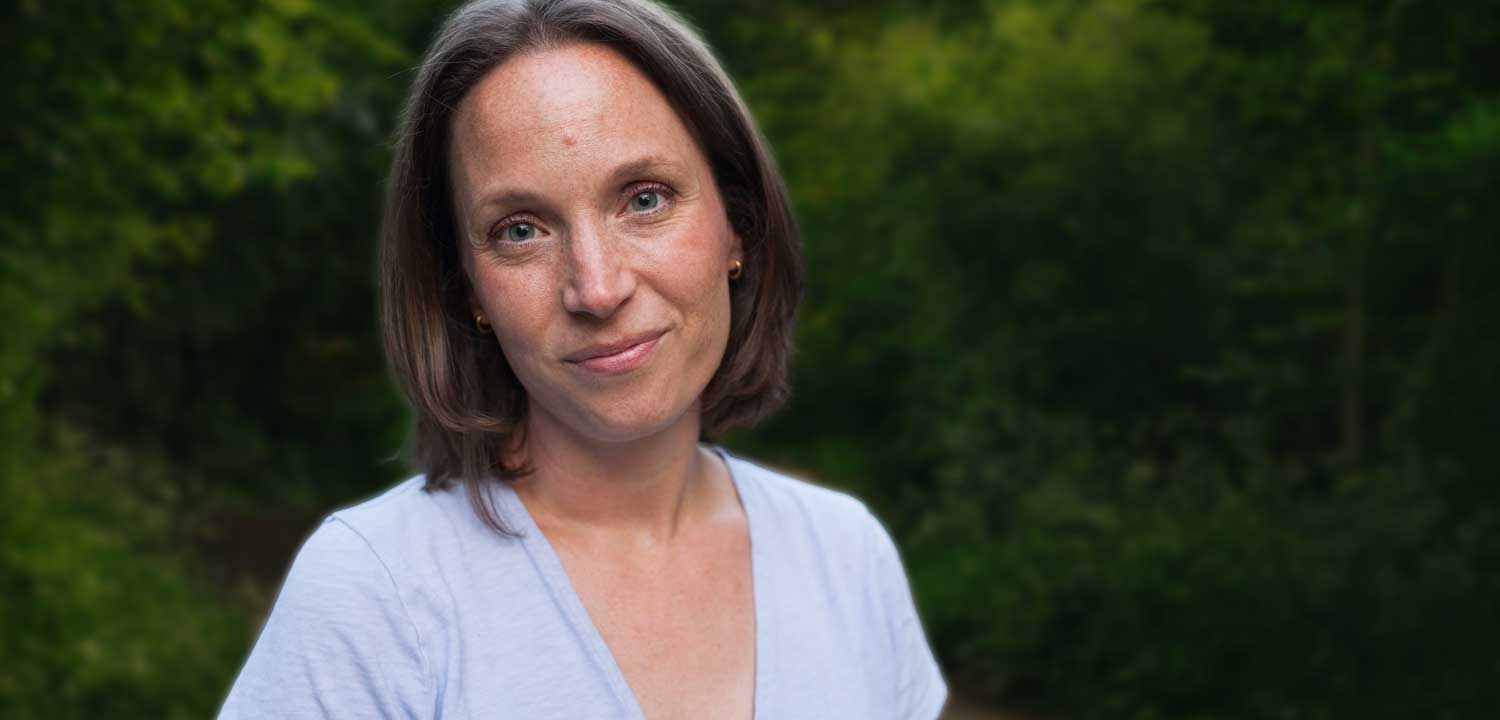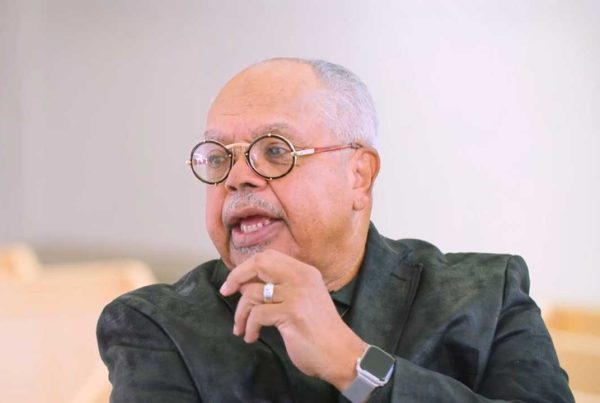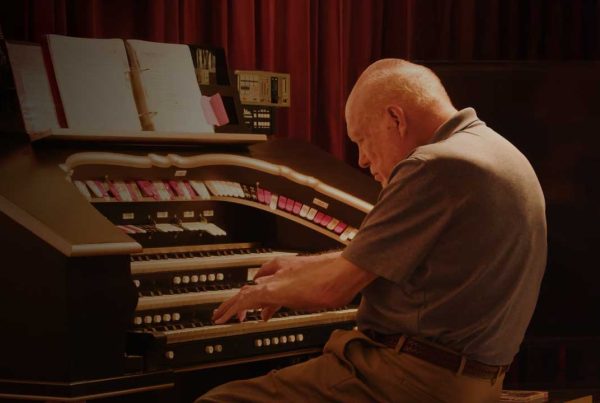The Power of Therapy: Resident Therapist Amy Rager (MACMHC ’23)
Amy Rager, a Licensed Mental Health Counselor Associate (LMHCA) and graduate of CTS’ Master of Arts in Clinical Mental Health Counseling degree program, is more than just a therapist – she’s a compassionate guide helping individuals through anxiety, trauma, grief, relationship issues, and spiritual concerns. In a recent conversation, Amy opened up about her first full year of experience as a resident therapist at CTS, shedding light on her professional journey, her love for the process of therapy, and how her role embodies the values of CTS.
A Year in Residency: Building Confidence and Connection
When students graduate from the School of Counseling, they are required to earn clinical hours before they can sit for licensure exams. Immediately following her graduation in May 2023, Amy chose to begin earning the 3,000 clinical hours she needs for licensure by serving as a resident therapist at the CTS Counseling Center. She has embraced her role as a resident therapist with both excitement and a bit of apprehension. “It’s been wonderful. It’s been a ride, but it really has been wonderful,” Amy reflects on her first-year post-graduation. The transition from student to clinician required overcoming some initial trepidation, as Amy described: “Building a client caseload is daunting… there is a lot of anxiety over how you’re going to find these clients.”
Despite her initial anxieties, Amy’s caseload began to grow steadily. “By October, within about five months of residency, I was regularly seeing around 15 clients a week,” she shares, grateful for the gradual growth that allowed her to ease into the process. One of the most valuable aspects of the residency program at CTS, according to Amy, is the support that comes with it. The structured yet flexible program provided her not only with the practical skills to manage a caseload but also with the opportunity to continue growing as a clinician. “One of the things I was looking for in a residency placement was somewhere that was going to continue to invest in me and my growth as a clinician. I knew that would happen here at CTS,” she says.
A Balance Between Learning and Practice
One of the primary reasons Amy chose the residency program at CTS was its emphasis on continued learning. “All the while, I’m continuing to learn and grow as a clinician, which was very important to me,” she explains. The residency program is designed to bridge the gap between being a student and working independently in private practice. Residents have the freedom to set their schedules and determine their caseload, but they also benefit from regular supervision, which is key to their development.
Amy meets with her supervisor, Clinic Director Bryan Votaw, weekly and participates in group supervision with other resident therapists and supervisors. This collaborative environment fosters deep conversations about client cases, self-care for clinicians, and different therapeutic modalities. “We get a lot of support,” Amy notes, highlighting the importance of these discussions in helping her think deeply about her clients and how best to serve them.
The Therapeutic Journey: Helping Clients Find Themselves
When it comes to her therapeutic focus, Amy is particularly passionate about helping clients who feel stuck or disconnected from themselves. “One of the things I love seeing as a therapist is when a client comes in feeling stuck – not themselves – and navigating this sense of frustration and hopelessness,” she says.
For Amy, therapy is about more than just resolving issues – it’s about helping people reconnect with their full, whole selves. She finds immense joy in watching her clients come alive through the therapeutic process, embracing not just happiness but the full range of human emotions. “Seeing clients learn that even emotions like grief and anger have something to teach us… is amazing,” she explains. The way she describes her work is deeply aligned with the values of compassion, empathy, and holistic healing that CTS fosters in its students.
Amy’s approach to therapy is about embracing the complexity of the human experience. “Watching people allow themselves to feel those emotions, seeing their joy and surprise and the way it invigorates them… that’s what I love,” she adds. By facilitating this journey for her clients, Amy helps them step into their wholeness, a process she finds both beautiful and life-giving.
Therapy as a Lifelong Journey
Amy’s decision to become a therapist was deeply personal, rooted in her own experiences with therapy and healing. “Any therapist worth their salt will tell you, our own woundedness led us here,” she says candidly. Like many therapists, Amy has experienced the transformative power of therapy in her own life, and it is this experience that fuels her passion for helping others. “We’re here because we believe in and value the process of therapy,” she says.
This belief in the therapeutic process is not only something she brings to her work with clients, but also something she continues to practice in her own life. “I am consistently having to grow and help myself in order to help my clients,” Amy acknowledges, emphasizing the importance of personal growth in her professional journey. She views therapy as a reciprocal process – one that benefits both the client and the therapist. “There is something really beautiful and life-giving about therapy whether you’re in the client seat or the therapist seat,” she reflects.
Looking Ahead: A Path Forward in Healing
As Amy continues her residency, she remains committed to providing compassionate, thoughtful care to her clients while also continuing her own professional development. With a full caseload of clients and a deep passion for her work, Amy is well on her way to completing the necessary clinical hours for her licensure as a Licensed Mental Health Counselor (LMHC). Typically, resident therapists complete their residency in about two years, but the exact timeline depends on the pace and number of clinical hours accrued.
For those interested in working with Amy or one of the other resident therapists at CTS, the process is straightforward. Clients can either reach out directly to a specific therapist or contact the Counseling Center for assistance in finding the right fit. While working with a resident therapist comes at a slightly higher cost than working with a student intern, clients benefit from the additional experience that resident therapists like Amy bring to the table.
In the meantime, Amy continues to live out the values of CTS in her work, offering a safe, supportive space for individuals to heal, grow, and reconnect with themselves. Her dedication to both her clients and her own growth as a clinician serves as a testament to the power of therapy and the importance of compassionate care in the journey toward healing.
To learn more about the Resident Therapists at the Counseling Center, visit https://www.cts.edu/counseling-center/clinical-training-center/.






